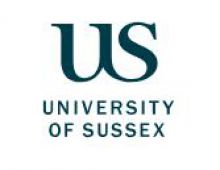The Office for Students (OfS) has been urged to show it is taking its coming free speech duties seriously by finally resolving its long-running investigation into Kathleen Stock’s departure from the University of Sussex.
More than three years after it began, the English regulator’s much-delayed review is still apparently ongoing, with another year passing and no further updates from any of the parties involved.
The case, which looks at the circumstances surrounding the philosopher’s resignation amid student protests over her views on gender identity, remains the only major free speech and academic freedom inquiry conducted by the regulator to date. It was initiated in November 2021 because of potential concerns that the university had breached its conditions of registration in relation to its duties on free speech and academic freedom.
Questions have again been raised about the report’s progress after the Labour government confirmed last week that it plans to revive parts of the Higher Education (Freedom of Speech) Act, including a complaints scheme to be run by the regulator that will adjudicate on similar issues.
Ministers acted despite concerns that the OfS is already overburdened and has had to drop much of its other work to focus on financial sustainability in the sector. There are doubts that concessions made, including allowing the OfS to focus only on the most serious cases, will do much to relieve the pressure.
Dennis Hayes, emeritus professor of education at the University of Derby and the director of the campaign group Academics for Academic Freedom, said he hoped the fact that parts of the act will be commenced will prompt the OfS, and its free speech director Arif Ahmed, to finish the investigation, and publicise its findings.
He said failure to do so would send a “clear message” that other universities accused of breaching free speech duties will not face consequences.
The OfS’ scheme has taken on additional importance because of the planned removal of the statutory tort from the legislation that would have allowed complainants unhappy with the regulator’s decisions to take their case to the courts.
Jo Phoenix, professor of criminology at the University of Reading, who won an employment tribunal against her old employer, the Open University, after claiming she was subjected to a “hostile environment” because of her gender-critical views, felt that the OfS’ ability to hold institutions to account had been damaged by the removal of the tort and settling the Stock case would send a signal that it was taking its new free speech duties seriously.
What can universities do to protect academic freedom?
Phoenix said in the time that had lapsed, the new guidance and expertise brought in by the OfS had changed its approach, and called on the regulator to at least publish the details of how the case is being judged.
Other changes Labour is making to the legislation include removing the ability of students to access the complaints scheme and allowing the regulator to prioritise the most serious of complaints to prevent the regulator being overwhelmed by the scheme.
But Smita Jamdar, partner and head of education at the law firm Shakespeare Martineau, said despite the changes there were still likely to be a lot of complaints “of varying ranges of merit” and setting a threshold for how serious something is would prove difficult.
“It’s going to be hard to define where to draw the line. They are almost always going to have to do some investigation,” she said.
The OfS said it had a longstanding policy of not commenting on ongoing investigations.
Register to continue
Why register?
- Registration is free and only takes a moment
- Once registered, you can read 3 articles a month
- Sign up for our newsletter
Subscribe
Or subscribe for unlimited access to:
- Unlimited access to news, views, insights & reviews
- Digital editions
- Digital access to THE’s university and college rankings analysis
Already registered or a current subscriber?










